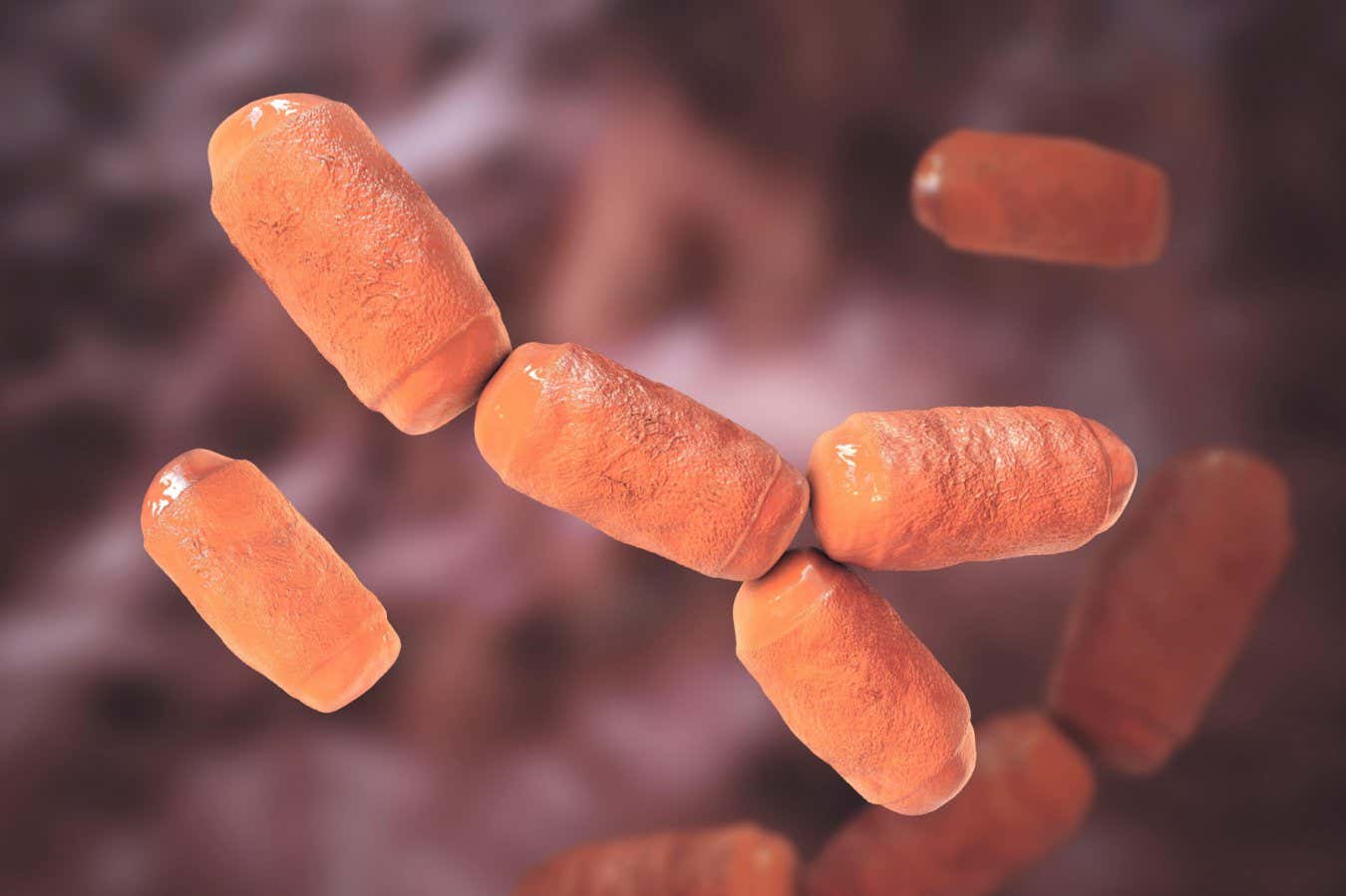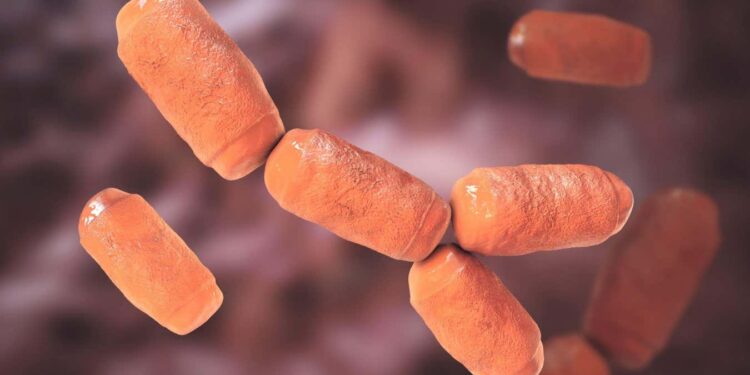
Evidence is mounting that a microbe called Methanobrevibacter smithii is involved in colorectal cancer
KATERYNA KON/SCIENCE PHOTO LIBRARY/Alamy
Mysterious ancient microorganisms that are neither bacteria nor viruses seem to play a role in colorectal cancer. This supports the idea that such microbes, which were thought to be harmless, could actually be involved in human disease.
There are three domains of life. The first comprises single-celled bacteria. The second is made up of organisms known as eukaryotes that are often multicellular, including all animals and plants. These have larger cells packed with internal structures, including a nucleus stuffed with DNA.
Archaea make up the third domain. These are single-celled organisms that were originally thought to be bacteria because they lack a nucleus, but were found to share some similarities with eukaryotes. In fact, it is now thought that the first eukaryotes may have been archaea that engulfed free-living bacteria.
Although the trillions of bacteria and viruses lurking within our gut have been linked to many conditions – including cancer, diabetes, obesity and heart disease – the archaea that live there aren’t normally examined for such associations.
“Most scientists who are working on the human microbiome overlook archaea and totally filter out these organisms,” says Roxy Mohammadzadeh at the Medical University of Graz in Austria. Nonetheless, high numbers of archaea have been seen to occur alongside conditions including colorectal cancer, Parkinson’s disease and infections of the gums and urinary tract.
To better understand these associations, Mohammadzadeh and her colleagues searched for any gut archaeal signatures of disease in 19 clinical studies covering more than 1800 individuals.
They found that associations between archaea and a range of medical conditions are common but variable. However, they did discover a consistent increase of an archaeon known as Methanobrevibacter smithii in people with colorectal cancer. This organism plays a big role in our digestion by consuming products of bacterial fermentation, such as hydrogen and carbon dioxide, and releasing methane.
The team found, via modelling and by culturing the microbes, that M. smithii interacted with bacteria including Bacteroides fragilis, Escherichia coli and Fusobacterium nucleatum.
Those three species have been linked to colorectal cancer before, but it was the relationship with F. nucleatum that seemed most notable. In the presence of M. smithii, F. nucleatum produced much more of a compound known as succinate, a critical metabolic signalling molecule. However, in cancer succinate is known to enhance tumour invasiveness and its potential to spread.
“It’s the first mechanistic evidence showing the role of archaea on human disease and specifically colorectal cancer,” says Mohammadzadeh.
This study supports earlier work associating M. smithii with colorectal cancer, says Gianmarco Piccinno at the University of Trento in Italy. But given that most of the evidence so far is only correlational, he says that further research is required to determine any cancer-causing mechanisms and why people with colorectal cancer have more of this microbe.
“While archaea have been recognised as components of the human microbiome, their direct involvement in disease has remained poorly understood,” says Sunny Wong at Nanyang Technological University in Singapore, who has also recently reported links between archaea and colorectal cancer. “Although existing in much smaller numbers than bacteria in the gut, they are metabolically active and often consume hydrogen, produce methane and do interact with bacteria, as well as the host.”
Topics:
Source link : https://www.newscientist.com/article/2486826-weird-harmless-microbes-may-play-a-pivotal-role-in-colorectal-cancer/?utm_campaign=RSS%7CNSNS&utm_source=NSNS&utm_medium=RSS&utm_content=home
Author :
Publish date : 2025-07-03 16:00:00
Copyright for syndicated content belongs to the linked Source.





